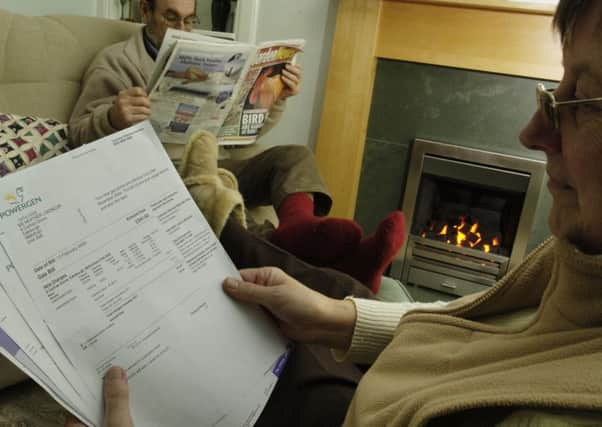Gina Hanrahan: let's turn warm words into warm homes


No-one should have to live in a cold home. Cold homes can aggravate respiratory conditions such as asthma, increase mental health risk and affect children’s educational attainment. Yet in Scotland, 35 per cent of households live in fuel poverty. And this proportion is stagnant, despite the Scottish Government’s statutory target to eradicate the problem by the end of this year.
Of course, leaky homes are not just leaking precious cash, they are also leaking carbon emissions into the atmosphere, contributing to climate change. In fact, heating our buildings, businesses and hot water accounts for around half of Scotland’s climate change emissions and over half our energy use.
Advertisement
Hide AdAdvertisement
Hide AdThat’s why we need to take a radically new approach to improving the energy performance of Scotland’s homes by making energy efficiency a National Infrastructure Priority. This would give a project to improve our housing stock the same political focus, and the same kind of multi-year, multi-billion-pound budgets that we give to spanning the Forth with a new bridge or dualling our major roads.
All the parties currently represented in the Scottish Parliament have already committed to making energy efficiency an infrastructure priority in last year’s Climate Change Leaders’ Agreement, something that Stop Climate Chaos Scotland (SCCS) has been advocating strongly in its manifesto for the 2016 elections and elsewhere. And the Scottish Government announced that this approach would be the centrepiece of its response to Scotland’s fourth missed climate change target last year. But the challenge is to move from commitments to reality, by setting out a clear goal for the project, a clear plan for how it would be delivered, and a clear budget and financing strategy.
Civic organisations across Scotland, including SCCS and WWF, and other groups campaigning around health, poverty, business, and children, recently set out their vision for what this approach should look like. We believe all homes need to be upgraded to a C energy rating by 2025, backed by funding of upwards of £10 billion over the next decade, split between the public and private sectors. Those who can’t pay must be supported with grants to improve their houses; those who are able to pay should have access to low or zero interest loans.
A project of this scale means upgrading around 130,000 homes a year over the next decade. But if we succeed we will help to slash fuel bills, address fuel poverty, reduce climate emissions, tackle excess winter deaths and ease pressure on NHS budgets, and stimulate up to 9,000 net jobs a year, spread across Scotland.
Despite the commitment from the Scottish Government to this approach, the draft budget published in December saw funding for energy efficiency cut by 13 per cent to £103.3 million. But we know that the budget is going to have to increase dramatically over the coming years if we’re to achieve all the benefits a huge new energy efficiency programme promises. There’s still time to put this right before the final budget is published, sending a signal that Scotland means business when it comes to addressing fuel poverty and energy efficiency.
Over 5,000 people marched on the streets of Edinburgh ahead of the Paris talks in support of strong domestic action to tackle the global challenge of climate change. Upgrading our housing stock is one way that acting locally can help globally too. If this matters to you, then you should encourage Scotland’s party leaders to set out an ambitious plan to end cold homes in Scotland within a decade.